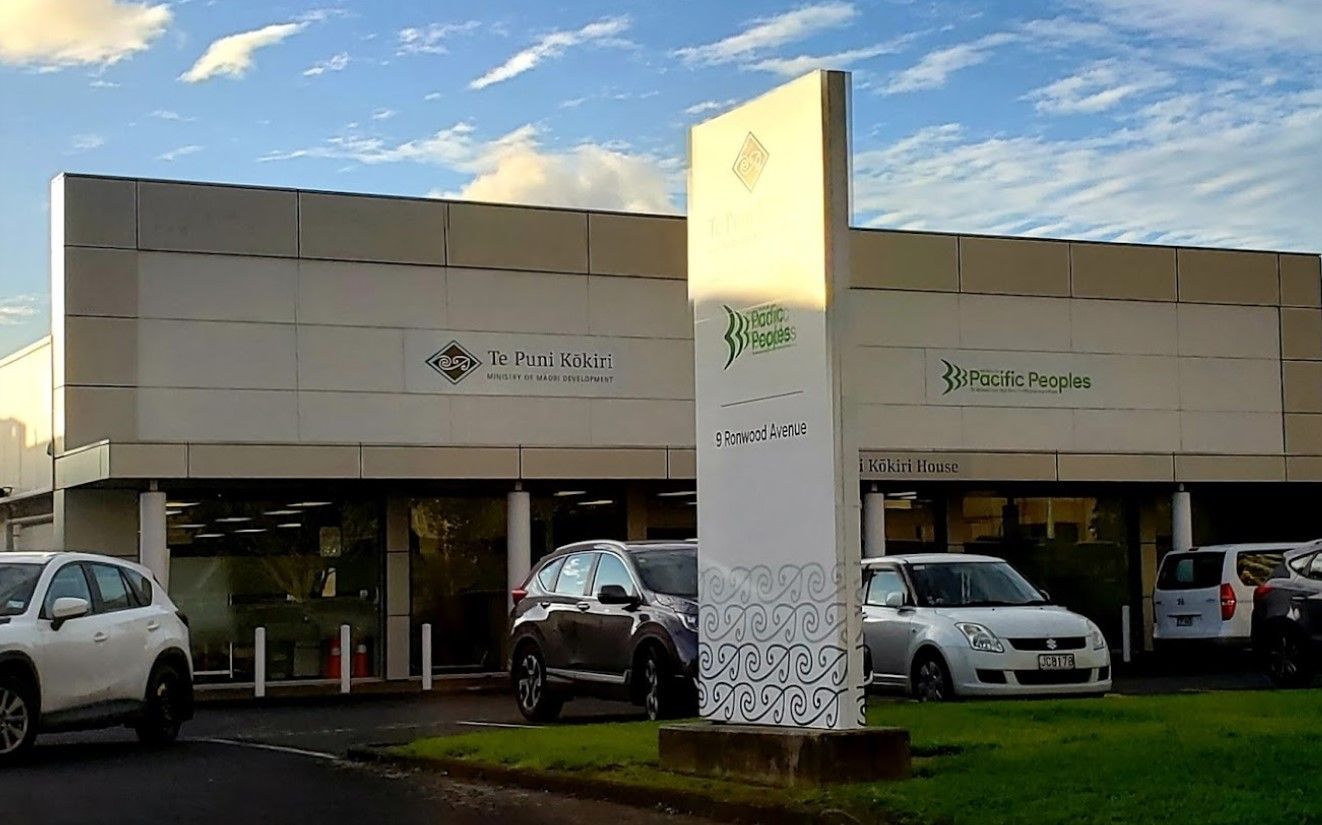

Gerardine Clifford-Lidstone says the ministry aims to win back the public's trust.
Photo/Ministry for Pacific Peoples
MPP took a ‘reputational hit’ - CEO
But Gerardine Clifford-Lidstone says the Ministry for Pacific Peoples is working on winning back the public’s trust following its lavish farewell scandal.




Tonga's Crown Prince set to retain key foreign affairs and defence roles in new cabinet

Heading off on a roadie? Here’s how to keep your car and whānau safe




Tonga's Crown Prince set to retain key foreign affairs and defence roles in new cabinet

Heading off on a roadie? Here’s how to keep your car and whānau safe
The reputation of the Ministry for Pacific Peoples has suffered a major setback, but it remains dedicated to serving the community, Secretary for Pacific Peoples Gerardine Clifford-Lidstone says.
Her comments follow public backlash when in August 2023 the Public Service Commission revealed that the previous MPP administration had spent more than $40,000 on her predecessor's farewell.
Leauanae Laulu Mac Leauanae was the former chief executive who ended his tenure in October 2022 and now heads up the Ministry for Culture and Heritage. Clifford-Lidstone took up her role at the MPP in February 2023.
The Commission criticised the ministry for the extravagant spending for its departing CEO, which included $7143.64 on travel and accommodation for 12 guests, $3083 for discretionary expenses like photography, flowers, and ceremonial drummers, and $7555.49 on gifts.
In an exclusive media interview, Clifford-Lidstone says the ministry has met achievements and significant challenges, including community concerns over staffing and budget cuts under the coalition government.
Watch Gerardine Clifford-Lidstone's interview below.
“There was a sense of disappointment and a real fear that this would see the loss of something that many of our communities fought for a long time around the Ministry for Pacific Peoples,” she told Pacific Mornings’ William Terite.
“There's probably another part of the community that don't necessarily access our services, so they don't understand how important it is.
“I think any organisation that takes a reputational hit, it takes a long time to build it up and it just takes a couple of hours to break it down.
“All I can say is that we'll continue to work on building it.”
The former CEO Leauanae apologised for the misuse of taxpayers’ money spent on the fancy farewell when he left MPP and for a welcome event at his new job.
Leauanae was on leave before his MPP farewell and had no hand in the decisions for the event but he repaid $7500 and returned all the gifts.

The Ministry of Pacific Peoples office in Manukau. Photo/Google
Addressing concerns over the recent budget cuts, Clifford-Lidstone says the MPP is more streamlined and efficient with its spending.
“I don't think that we're doing things on the cheap. What we're doing is really being more efficient and really upskilling our staff to be competitive in the wider market.”
She says the MPP's role has changed since its inception, which can confuse some people.
In its current iteration, she says it works with other agencies to ensure there is support for Pacific communities.
“Initially, the ministry was a policy ministry. It's had various iterations over the years. It started with some operational funding, then it became a policy ministry, and then it got more operational funding.
“We also have some funding to support in areas like housing, economic development, business development, and that kind of causes that ambiguity because people think, well, you're duplicating what's already out there.
“We've got a role of connecting communities with the wider system.”
Clifford-Lidstone says there is a correlation between unfavourable socioeconomic circumstances and ethnicity, and that the ministry aims to assist those who need it.
“It's really easy to see that there's a really strong relationship between adverse socio-economic circumstances and ethnicity, so what that means is it leads to the assumption that one is a proxy for the other. So, if you're a Pacific, you've got poor outcomes.
Watch PSA National Secretary Duane Leo's interview below.
“The difference between people that are in circumstances that require the help and happen to be Pacific versus people who are not Pacific or who are Pacific and don't need it.
“We have higher rates of unemployment, we've got lower household income, we've got lower participation in early childhood education, university, we're more likely to be in single-parent or multi-generational homes, life expectancy is lower, we can argue on need, no problem at all.
“The issue for us from MPP is, let's get the quality of our data really good so that we can show what that.”
Asked whether the MPP was effective given it has existed for over 40 years but Pacific socioeconomic outcomes like education, home ownership, and health have barely improved, Clifford-Lidstone says it is difficult for a ministry of its size to bring about sweeping change.
“It's really hard for a small agency to fix all those things. I guess the main thing is us starting to get our data and evidence to support those bigger agencies to be more targeted and more effective.
“We've put a lot of work in the last 18 months on the data and evidence side of our work. Once we understand our position, we can advocate based on the data and evidence really strongly.
“We're an agency of $90 million. A lot of that goes into service delivery, and some of it goes into funding.
“Where we want to really shift and improve is working with those agencies that can make a big difference for our community.
“But at the end of the day, you have to hold us accountable for the things that we're responsible for and those agencies that are responsible for the bigger things we need to be working closely with.”